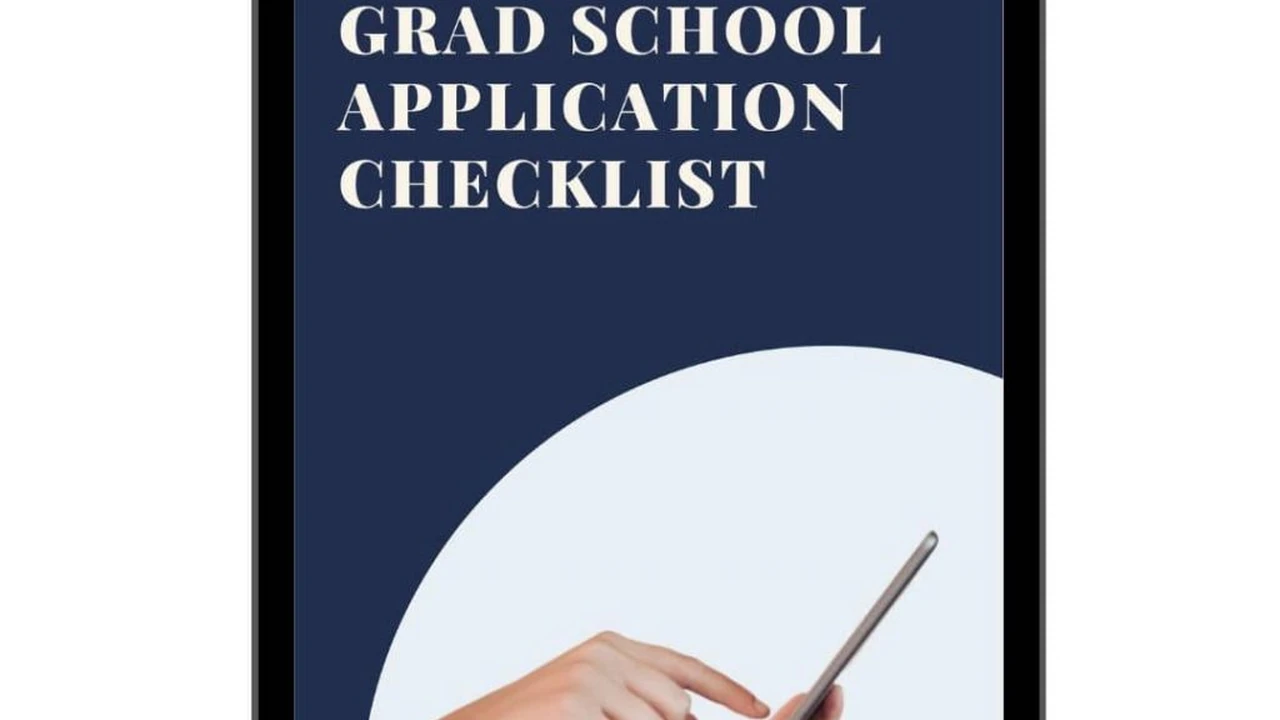Guide to Building a Strong Academic Network
Expand your opportunities with our guide to building a strong academic network. Connect with professors, mentors, and peers.

Expand your opportunities with our guide to building a strong academic network. Connect with professors, mentors, and peers.
Guide to Building a Strong Academic Network
Hey there, future academic rockstar! Ever wonder how some students just seem to have all the connections, the best research opportunities, and glowing recommendations? Chances are, they've mastered the art of academic networking. It's not just about who you know, but how you build genuine, mutually beneficial relationships within your academic community. This isn't some stuffy, formal process; it's about connecting with people who share your passions, can offer guidance, and might even become lifelong collaborators. Let's dive into how you can build a robust academic network that will serve you well throughout your studies and beyond.
Why Academic Networking Matters Your Future Connections
So, why bother with all this 'networking' stuff? Think of it as building your personal academic support system and launching pad. A strong academic network can open doors to research projects, internship opportunities, mentorship, and even future job prospects. When you're applying for graduate school or your first job, a strong recommendation from a professor who knows your work ethic and potential can be a game-changer. Plus, having a network of peers means you've got study buddies, collaborators for group projects, and friends who understand the unique challenges of student life. It's about creating a community where you can learn, grow, and thrive.
Connecting with Professors Building Faculty Relationships
Professors are your primary resource in academia, and building relationships with them is crucial. They're not just there to lecture; they're experts in their fields, potential mentors, and gatekeepers to many opportunities. But how do you approach them without feeling awkward?
Attending Office Hours Maximizing Professor Interaction
This is probably the easiest and most underutilized way to connect. Don't just show up when you're struggling. Go to office hours to discuss concepts that interest you, ask about their research, or even just introduce yourself. Prepare a few thoughtful questions. For example, instead of just asking about a grade, you could say, “Professor Smith, I was really intrigued by your lecture on quantum physics. Could you recommend any further reading on the topic, or perhaps tell me more about your current research in that area?” This shows genuine interest and initiative.
Engaging in Class Active Participation Strategies
Participating in class discussions, asking insightful questions, and contributing thoughtfully shows professors you're engaged and serious about the subject matter. They notice who's paying attention and who's just passively sitting there. Don't be afraid to speak up, but make sure your contributions are relevant and add value.
Seeking Research Opportunities Getting Involved Early
Many professors are involved in research and are often looking for motivated students to assist them. If a professor's research aligns with your interests, express your enthusiasm. You might start by volunteering, or if you have relevant skills, you could inquire about paid research assistant positions. This is an incredible way to gain hands-on experience and build a strong bond with a faculty member.
Mentorship Matters Finding Your Academic Guides
A mentor can be a professor, an older student, an alumnus, or even someone in your desired career field. They offer guidance, share experiences, and provide support. Finding a mentor isn't always a formal process; sometimes, it evolves naturally from a strong connection.
Identifying Potential Mentors Qualities to Look For
Look for individuals who are successful in areas you aspire to, who are approachable, and who seem genuinely interested in helping others. They should be good listeners and willing to share their knowledge and networks.
Approaching a Mentor Building the Relationship
Once you've identified someone, start by building a casual relationship. Ask for advice on a specific topic, or express interest in their work. If the connection feels right, you can then formally ask if they'd be willing to mentor you. Be clear about what you hope to gain from the mentorship, and respect their time.
Connecting with Peers Building Student Networks
Your fellow students are an invaluable part of your academic network. They're going through similar experiences, and you can support each other, collaborate, and even form lifelong friendships.
Joining Student Organizations and Clubs Expanding Your Circle
This is a fantastic way to meet like-minded individuals. Whether it's a club related to your major, a hobby group, or a volunteer organization, these groups provide a natural setting for building connections. You'll meet people with shared interests, which makes starting conversations much easier.
Collaborating on Group Projects Effective Teamwork
Group projects are often dreaded, but they're prime opportunities for networking. Take them seriously, contribute your fair share, and be a good team player. You'll not only get to know your classmates better but also demonstrate your collaborative skills, which are highly valued in any professional setting.
Utilizing Study Groups and Peer Tutoring Mutual Support
Forming study groups can be incredibly effective for learning and building camaraderie. You can explain concepts to each other, share notes, and motivate one another. Peer tutoring programs, whether you're giving or receiving help, also foster strong academic connections.
Leveraging University Resources Career Services and Alumni Networks
Your university offers a wealth of resources specifically designed to help you build your network.
Career Services Workshops and Networking Events
Your university's career services office isn't just for job hunting. They often host networking events, career fairs, and workshops on professional development. Attend these! You'll meet alumni, recruiters, and other professionals who can offer insights and opportunities.
Alumni Networks Connecting with Graduates
Alumni are often eager to help current students. Many universities have formal alumni networking platforms or events. Reach out to alumni in fields that interest you for informational interviews. They can provide valuable advice and even connect you with others in their network.
Online Networking Strategies Digital Connections
In today's world, a significant part of networking happens online. Don't underestimate the power of digital platforms.
LinkedIn for Students Building Your Professional Profile
If you don't have a LinkedIn profile, create one now! It's the professional social media platform. Connect with professors, classmates, and alumni. Follow companies and organizations that interest you. Use it to research potential mentors and job opportunities. Make sure your profile is professional and highlights your academic achievements and skills.
Academic Social Media Platforms Engaging in Discussions
Depending on your field, there might be specific academic social media platforms or online forums where researchers and students discuss their work. Engaging in these discussions can help you connect with experts and stay updated on current research trends.
Email Etiquette Professional Communication
When reaching out to professors, mentors, or alumni via email, always be professional. Use a clear subject line, address them respectfully, keep your message concise, and clearly state your purpose. Proofread carefully before sending.
Maintaining Your Network Nurturing Relationships
Building a network isn't a one-time event; it's an ongoing process. Relationships need to be nurtured.
Regular Check-ins Staying in Touch
Periodically check in with your contacts. Send an email to a professor to update them on your progress, or congratulate an alumnus on a recent achievement. A simple, thoughtful message can go a long way in keeping the connection alive.
Offering Help Reciprocity in Networking
Networking is a two-way street. Be willing to offer help when you can. If a peer needs assistance with a concept you understand, offer to explain it. If you come across an opportunity that might benefit someone in your network, share it. Reciprocity strengthens relationships.
Expressing Gratitude Showing Appreciation
Always thank people for their time, advice, or assistance. A sincere thank-you note or email can leave a lasting positive impression.
Common Networking Mistakes to Avoid Pitfalls and Solutions
While networking is beneficial, there are some common missteps to steer clear of.
Being Too Transactional Focusing on Give and Take
Don't approach networking with a 'what can I get?' mindset. Focus on building genuine relationships and offering value. Opportunities will naturally arise from strong connections.
Not Following Up The Missed Opportunity
If someone offers to help you or suggests a resource, follow up! If you don't, it shows a lack of interest and can damage the relationship.
Being Unprepared for Interactions Maximizing Every Moment
Before meeting someone or attending an event, do your homework. Research the person or organization. This shows respect for their time and allows you to ask more informed questions.
Over-Networking Quality Over Quantity
It's better to have a few strong, meaningful connections than hundreds of superficial ones. Focus on building deep relationships with people who genuinely align with your academic and career goals.
Real-World Examples and Product Recommendations Tools for Connection
Let's talk about some practical tools and scenarios that can help you in your networking journey.
Professional Attire for Networking Events Dressing for Success
While not a 'product' in the traditional sense, appropriate attire is a tool for making a good first impression. For most academic networking events, business casual is a safe bet. Think neat trousers or a skirt, a collared shirt or a blouse. Avoid overly casual wear like t-shirts, shorts, or flip-flops. Brands like Uniqlo or H&M offer affordable, stylish business casual options. For a slightly more formal look, consider brands like Banana Republic Factory or J.Crew Factory, which often have student discounts.
Digital Business Cards Modern Contact Exchange
While traditional paper business cards are still used, digital business cards are gaining popularity, especially for students. Apps like HiHello (Free basic plan, premium features around $5/month) or Popl (Starts at $14.99 for a Popl device) allow you to create a digital profile with all your contact info, social media links, and even a portfolio. You can share it via QR code or NFC tap. This is super convenient and eco-friendly. HiHello is great for its free tier and ease of use, while Popl offers physical NFC tags for a quick tap-and-share experience.
Note-Taking Apps for Remembering Connections Efficient Information Storage
After a networking event or meeting, you'll want to remember key details about the people you met. A good note-taking app is essential. Evernote (Free basic, premium from $7.99/month) and Notion (Free for personal use, team plans from $8/user/month) are excellent choices. You can create dedicated notebooks for your network, jot down names, affiliations, discussion points, and follow-up actions. Evernote is fantastic for quick notes and web clipping, while Notion offers more robust database features for organizing complex information. For a simpler, free option, even your phone's built-in notes app or Google Keep can work wonders.
Professional Email Services Reliable Communication Tools
While your university email is fine, having a professional personal email (e.g., firstname.lastname@gmail.com) is also a good idea, especially as you transition out of university. Gmail (Free) is the industry standard for its reliability and integration with other Google services. Ensure your email address is professional and easy to remember.
Online Course Platforms for Skill Development Enhancing Your Value
To make yourself more valuable to your network and potential mentors, continuously develop your skills. Platforms like Coursera (Individual courses vary, subscriptions from $39/month), edX (Individual courses vary), and LinkedIn Learning (Included with LinkedIn Premium, or $29.99/month) offer courses in everything from data analysis to public speaking. Learning new skills not only makes you more marketable but also gives you more to talk about and contribute to your network. For example, if you're interested in data science, completing a course on Python for Data Analysis from Coursera can give you a tangible skill to offer in a research project.
Event Discovery Platforms Finding Opportunities
To find networking events, workshops, and conferences, use platforms like Eventbrite (Free for attendees) or your university's event calendar. Many academic departments also have their own mailing lists for seminars and guest lectures. Subscribing to these can keep you informed about opportunities to meet experts in your field.
Building a strong academic network is an investment in your future. It takes time, effort, and genuine interest, but the rewards are immense. By actively engaging with professors, mentors, and peers, and by leveraging the resources available to you, you'll create a supportive community that will help you navigate your academic journey and beyond. So, go forth, connect, and build those bridges!
:max_bytes(150000):strip_icc()/277019-baked-pork-chops-with-cream-of-mushroom-soup-DDMFS-beauty-4x3-BG-7505-5762b731cf30447d9cbbbbbf387beafa.jpg)






